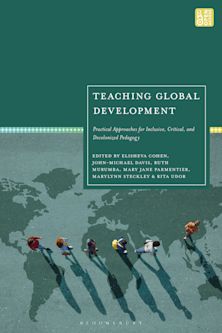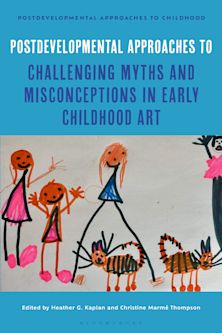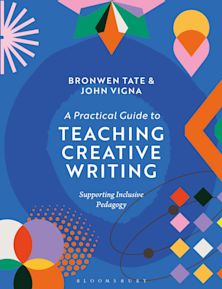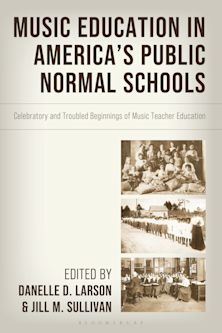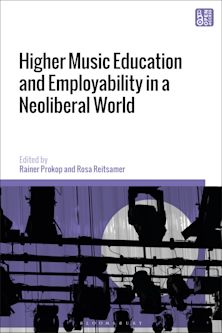Wordsmithing
Classroom Ready Materials for Teaching Nonfiction Writing and Analysis Skills in the High School Grades
Wordsmithing
Classroom Ready Materials for Teaching Nonfiction Writing and Analysis Skills in the High School Grades
For information on how we process your data, read our Privacy Policy
Description
Literacy: Made for All is a classroom-ready, teacher-friendly resource for English and Writing teachers of Grades 9 through 12. Organized buffet style, it is designed to complement an existing English curriculum by providing a tested repertoire of strategies for teaching both writing skills and literary analysis techniques.
Benefits and Features:
tested and proven effective at all learning levels, from Remedial to Pre-APprovides complete lesson plans including reproducible materials can be implemented as is or modified to suit individual teaching styles and/or students' needseach skill, assignment or project begins by 'teaching the teacher', giving an inexperienced teacher the knowledge to provide effective instruction first time out and the confidence to modify and experiment thereaftercomprised of reading, writing, literary criticism and language-study componentsmoves students from writing effectively to reading analytically (approaching text from the authoring point of view), a proven, highly successful methodologycan turn any English course into a Literacy courseextremely versatile and cost-effectivecan deepen an existing English course or complete the framework for a new one
WORDSMITHING focuses on the creation, production and sharing of a variety of nonfiction writing projects. The textcan be implemented in the classroom alone or in tandem with the two other titles in the Literacy: Made for All Series —STORY CRAFTING and ENJOYING LITERATURE.
Also of interest for classroom teachers is the Let Them Write Series
CHARACTER DEVELOPMENT: Classroom Ready Materials for Teaching Writing and Literary Analysis Skills in Grades 4 to 8
PLOT BUILDING: Classroom Ready Materials for Teaching Writing and Literary Analysis Skills in Grades 4 to 8
SETTING AND DESCRIPTION: Classroom Ready Materials for Teaching Writing and Literary Analysis Skills in Grades 4 to 8
Table of Contents
Aims and Objectives of the Program
Introduction to Wordsmithing
A. WRITING PROJECTS
Introduction/Aims and Objectives
Project 1: Write an Advertising Campaign
...in 3 different media: Video/Television, Print/Magazine, Billboard or Teeshirt
Reproducibles/Media:WDR 1 -- Questions Advertisers Must Ask
WDR 2 -- Advertising Plan Sheet
WDR 3 -- Sample TV Script Page
WDR 4 -- Magazine Ad Strategies
WDR 5 – Proofread with a Partner Checklist: Video Ad Script
WDR 6 -- Writing an Ad Campaign Assessment Sheet
Project 2: Write and Deliver a Speech
Debating Speech, Election speech, Acceptance speech, Speech for evaluation/competition
Reproducibles/Media:WDR 7 -- Speech Planner Sheet
WDR 8 -- Speech Outline Chart
WDR 9 -- Debate Assessment Sheet
WDR 10 -- Acceptance Speech Questions
WDR 11 – Second Draft Questions
WDR 12 -- Written Speech Assessment Sheet
WDR 13 -- Speech Assessment Criteria
Project 3: Write a Personal Essay
Sharing an experience, Sharing an opinion, Opening a window on the author's world
Reproducibles/Media:WDR 14 -- Essay and Article Outline
WDR 15 – Proofread with a Partner Checklist – Personal Essay
WDR 16 -- Personal Essay Assessment Sheet
Project 4: Write a Biographical/Personality Profile
Profile a family member, an historical figure, a fictional character
Reproducibles/Media:WDR 17 --Present Situation Bio Sheet
WDR 18 -- Past History Bio Sheet
WDR 19 -- Future Goals Bio Sheet
WDR 20 -- How to Interview
WDR 21 -- Personality Profile Planner
WDR 22 -- Proofread with a Partner Checklist – Personality Profile
WDR 23 -- Personality Profile Assessment Sheet
Project 5: Write a Review
...of a television show, a movie sequel or prequel, a music CD/album, a game
Reproducibles/Media:WDR 24 -- Review Planner
WDR 25 – Proofread with a Partner Checklist – A Review
WDR 26 -- Review Assessment Sheet
Project 6: Write a Researched Article
...for submission to a magazine
Reproducibles/Media:WDR 27 -- Tracking Sheet -- Individuals
WDR 28 -- Letter to Parents
WDR 29 -- Student Researcher ID Cards
WDR 30 -- Article Planner
WDR 31 -- Research Report Sheet
WDR 32 -- Proofread with a Partner Checklist
– A Researched Article
WDR 33 -- Researched Article Assessment Sheet
Project 7: Write Documentation
...to accompany things that do not usually come with instructions for care: teenagers, families, new babies, your health....
Reproducibles/Media:WDR 28 – Letter to Parents
WDR 34 -- Tracking Sheet – Groups
WDR 35 -- Documentation Planner
WDR 29 – Student Researcher ID Cards
WDR 31 – Research Report Sheet
WDR 36 -- Documentation Assessment Sheet
Project 8: Write a Formal Letter
Covering letter, Letter of complaint, Letter of application, , Letter of apology, thanks, congratulations, or condolences
Reproducibles/Media:WDR 37 -- Formal Letter Format
WDR 38 -- Formal Letter Assessment Sheet
Project 9: Write a Report
Book report, Resumé, Researched report on teen behavior
Reproducibles/Media:WDR 39 -- Book Report Assessment Sheet
WDR 40 – Resumé Assessment Sheet
WDR 41 -- Letter to Parents (re Survey Assignment)
WDR 42 -- Information Report Assessment Sheet
B. STUDYING THE ESSAY
Introduction/Aims and Objectives
Part 1: Build Your Toolkit
Students familiarize themselves with literary terminology as they describe and discuss short nonfiction at three levels of analytical complexity.
Assignment 1: Define the Essay
Identifying and charting the characteristics of 5 different kinds of essays.
Reproducibles/Media:SER 1 – Types of Essays Information Sheet
SER 2 – Types of Essays Worksheet
SER 2A –Types of Essays Worksheet – exemplar filled in
SER 3 – Essay Analysis Worksheet
Assignment 2: Methods of Development and Thesis Support
Identifying and classifying the steps in building an essay and appealing to the reader.
Reproducibles/Media:SER 4 – Methods of Development
Assignment 3: Analyze on the Technical Level
An introduction to rhetorical devices that determine how the essay looks and sounds.
Reproducibles/Media:SER 5 – A Glossary Of Rhetorical/Literary Terms
SER 6 – Rhetorical Devices/Levels of Analysis
SER 7 – Answering An Effectiveness Question (Technical)
Assignment 4: Analyze on the Associative Level
An introduction to rhetorical devices that compare and contrast the essay's content with the real world.
Reproducibles/Media:SER 8 – Answering an Effectiveness Question (Associative)
Assignment 5: Analyze on the Thematic Level
An introduction to rhetorical devices that focus on what the reader brings to the reading of the essay.
Reproducibles/Media:SER 9 – Answering an Effectiveness Question (Thematic)
Assignment 6: Practice Close Reading of an Essay
How each word of an essay can contribute to its depth of meaning and its impact on the reader.
Assignment 7: Practice Analyzing an Essay
How to answer effectiveness questions about examples from an essay.
Reproducibles/Media:SER 10 – Levels of Analysis -- Effectiveness
Summative Product: Write a Sight Test
Reproducibles/Media:SER 11 – Tips for Writing a Sight Test
Summative Product: Answer an Effectiveness Question
Reproducibles/Media: SER 12 – Answering an Effectiveness Question Editing Checklist
SER 13 – Answering an Effectiveness Question Assessment Sheet
Part 2: Write a Literary Response
As students practice writing three different kinds of responses to short essays they will be honing both their writing and their critical thinking skills.
Assignment 1: Write a Dialectical Response to an Essay
Two columns on a sheet of paper, point form personal response to selected words or sentences.
Assignment 2: Write a Personal Response to an Essay
A short personal essay inspired by a work of short nonfiction.
Reproducibles/Media:SER 14 – Writing a Personal Response
SER 14A – The Writing Process (verso of SER 14)
Assignment 3: Write an Analytical Response to an Essay
A short essay critically examining the effectiveness of another essayist's choices.
Reproducibles/Media:SER 15 – Writing an Analytical Response
Completing The Final Draft, All Responses
Practicing the writing process to arrive at a finished product.
Reproducibles/Media:SER 16 – Proofread with a Partner – Dialectical Response
SER 17 – Proofread with a Partner – Personal Response
SER 18 – Proofread with a Partner – Analytical ResponseSER 19 – Assessment Checklist – Dialectical Response
SER 20 – Assessment Checklist – Personal Response
SER 21 – Assessment Checklist – Analytical Response
Part 3: Timed Writing Practice
Students learn and practice techniques that will help them do their best when answering essay-response questions on English examinations.
Assignment 1: Lay the Foundations
An introduction to syntax and diction.
Reproducibles/Media:SER 22– Introduction to Syntax
SER 23 – Clauses Determine Sentence Patterns
SER 24 – Phrases Enhance Sentence Meaning
SER 25 – Syntactical Effects
SER 26 – Diction: The Art of Carefully Choosing Words
Assignment 2: Practice Unpacking Prompts
Closely reading a question to determine how to respond.
Reproducibles/Media:SER 27 – Analyzing Tone in Literature
SER 28 – How to Read a Literary Question
Assignment 3: Develop a Supporting Example
Fully analyzing a selected quotation in the body of a written response.
Reproducibles/Media:SER 6 – Rhetorical Devices/Levels of Analysis
SER 10 – Levels Of Analysis – Effectiveness
Assignment 4: Organize an Essay Length Response (DFAR)
A tested and efficient template for a written response to a prompt.
Assignment 5: Write a Timed Response in 40 minutes or less
A proven effective way to help students prepare for final/AP exams.
Reproducibles/Media:SER 29 to 32 – Timed Writing Formative Assessment Sheets
SER 33 – Tips For Success in Timed Writing Exercises
C. WORD WORKS: A SUPPLEMENTARY LIBRARY OF MATERIAL
Introduction
Segment 1: Words Make Music
An introduction to Linguistics
Segment 2: Words Have Histories
An introduction to Etymology
Reproducibles/Media:WTR 1 – You Know More German Than You Think
WTR 1A – You Know More German Than You Think (Key)
WTR 2 – The Etymologies of Words
Segment 3: Words Do Different Jobs
An introduction to the Parts of Speech
Reproducibles/Media:WTR 3 – Nouns Worksheet
WTR 4 – Proper Nouns Worksheet
WTR 5 – Verbs Worksheet
Segment 4: Words Belong to Families
An introduction to Roots, Prefixes and Suffixes
Reproducibles/Media:WTR 6 – Word Study Worksheet
WTR 7 – Word Study Quiz
Segment 5: The Namesake Project
A unit on the meanings of names
Reproducibles/Media:WTR 8 – Names and Naming
WTR 9 – Where Surnames Come From
WTR 10 – Names of Names
WTR 11 – Pick A Name
WTR 12 – The Namesake Project Assignment Sheet
WTR 12A – So, What About You...? (verso of WTR 12)
Product details
| Published | Jun 04 2014 |
|---|---|
| Format | Ebook (Epub & Mobi) |
| Edition | 1st |
| Extent | 240 |
| ISBN | 9781475807370 |
| Imprint | Rowman & Littlefield |
| Series | Literacy: Made for All |
| Publisher | Bloomsbury Publishing |












